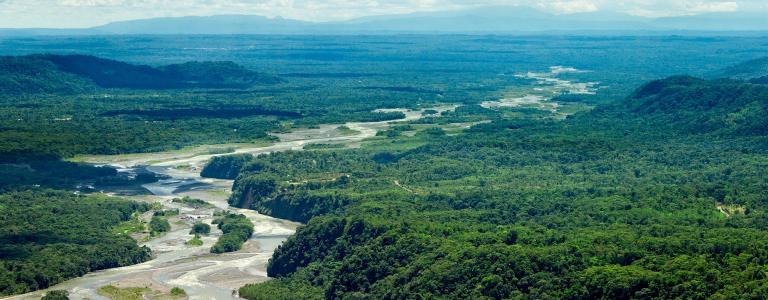Ecuador Referendum Rules Out ISDS Return, Underlining Public Support for a Sustainable Path
In a referendum on Sunday, April 21, the citizens of Ecuador emphatically voted to keep Article 422 of the country’s 2008 constitution, which prevents Ecuador from using international arbitration to settle disputes between Ecuador and foreign investors or private individuals in international treaties or instruments.
The result of the referendum underscores Ecuador’s strategy, which was developed in response to its negative experience with investment arbitration and investor–state dispute settlement (ISDS). This increasingly criticized mechanism, which allows foreign investors to sue states in international arbitration, has repeatedly been found to hinder states’ climate policies, social justice action, and right to regulate.
Ecuador has been on the receiving end of several costly compensation awards by ISDS tribunals in favour of investors. For example, in 2012, a tribunal ordered Ecuador to pay the U.S. oil company Occidental over USD 1.5 billion, one of the largest amounts a state had ever been ordered to pay. Ecuador argued that the amount of the award represented almost 9% of Ecuador’s 2012 annual budget, 59% of its annual education budget, and 135% of the country’s annual healthcare budget.
This settlement led Ecuador to exit the International Centre for Settlement of Investment Disputes Convention—the world’s primary institution managing disputes between states and foreign investors—and terminate its bilateral investment treaties with other states.
The risks that led Ecuador to turn away from ISDS over a decade ago have only become more acute, with damage awards reaching multiple billions of USD. These risks are especially acute in mining, oil, and gas, as these sectors have been frequent users of ISDS and involved in exorbitant awards. These sectors remain important sectors in Ecuador and receive significant foreign investment. The issue of inflated compensation in ISDS tribunals is yet to be solved—it is part of the ongoing discussions at the United Nations Commission on International Trade Law on ISDS reform.
The outcome of the referendum clearly demonstrates strong public support for Ecuador’s cautious and balanced approach to ISDS, grounded in its own painful history with this deeply flawed and outdated tool.
The citizens of Ecuador have signaled to policy-makers in the country and the region that ISDS is not a necessity and that if the country chooses to conclude bilateral investment treaties or investment chapters within free trade agreements, they will have to provide adequate protection for the environment, local communities, and climate action.
Media Contact
Suzy H. Nikièma, Director of Investment, IISD: snikiema@iisd.org
Florencia Sarmiento, Policy Advisor, IISD: fsarmiento@iisd.org
Isaak Bowers, Communications Officer, IISD: ibowers@iisd.org
About IISD
The International Institute for Sustainable Development (IISD) is an award-winning independent think tank working to accelerate solutions for a stable climate, sustainable resource management, and fair economies. Our work inspires better decisions and sparks meaningful action to help people and the planet thrive. We shine a light on what can be achieved when governments, businesses, non-profits, and communities come together. IISD’s staff of more than 250 experts come from across the globe and from many disciplines. With offices in Winnipeg, Geneva, Ottawa, and Toronto, our work affects lives in nearly 100 countries.
You might also be interested in
CSDDD: EU's Due diligence law vote should drive supply chain sustainability efforts
The European Parliament has voted to adopt the Corporate Sustainability Due Diligence Directive, aiming to address the environmental and social impacts of the supply chains of Europe's large corporations.
IISD: EU’s historic Energy Charter Treaty vote will boost energy transition
The European Parliament has voted for the European Union to withdraw from the climate-threatening Energy Charter Treaty.
Compensation and Damages in Investor-State Dispute Settlement
This report provides policy reform options to address the growing issue of damages awards in investor-state dispute settlement (ISDS).
State of the Sector: Critical energy transition minerals for India
This report presents a comprehensive strategy for securing a reliable supply of critical energy transition materials (CETMs) essential to India's clean energy and low-carbon technology initiatives.
